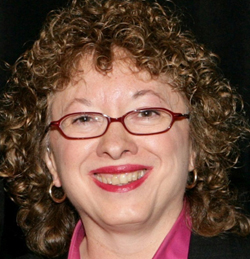Michael Duffy fell in love with automation in the 1980s when the manager of the battery plant where he worked as a mechanic asked him to start programming a line using PLCs (programmable logic controllers).
In 2009, he founded Keystone Automation. The company designs and builds specialized machinery for industries including packaging, food and beverage, pharmaceutical and manufacturing.
At first, the company encountered resistance from workers who were afraid of being replaced by machines. But, according to Duffy, Keystone Automation has enabled quite a few companies to bring work back to the United States from overseas.
“The only way to make a company profitable,” he says, “is to put people into jobs where they’re doing the smart stuff and let machines do the repetitive work.”
Keystone Automation delivers 700 unique projects, large and small, per year, and has 33 employees.
What inspired you to found Keystone Automation?
After graduating from Penn State University, I got a job at a design house in Scranton. I designed and programmed for them for five years. During that time I ran a $500,000 job — I was in charge of 20 engineers…That told me I could run my own company. So, in December 1999, I left and started Keystone Automation.
I did a project for the Lackawanna Recycling Center. I had a short-lived partnership; in 2000 I bought him out after three months. I wound up with a machine shop out of the deal. Friends of mine came in and we started doing mechanical engineering and design. So the idea of having a turnkey facility was born. That’s what we still do: turnkey design and fabrication.
We do have some standard equipment that we provide, but a lot of our equipment is custom. Companies that have unique products, or unique challenges, that’s where we’re the best fit, because we take a holistic approach to efficiency, cost savings, quality, to come up with the best approach. If what we’re doing doesn’t improve quality or save money, then there’s no point in doing it.
Can you give an example of how you’ve helped a company bring jobs back to the United States?
There’s a company that makes filing cabinets, and we made machinery for them that allows them to produce the cabinets in Delaware. Previously, they were being made in China. Now they’re being made in Delaware on second and third shifts to lower the cost of electricity to run the equipment. It’s now one of their most profitable cabinet lines.
How has your company grown?
In 2000, we moved into an 1,800-square-foot building in Pittston; in 2002 we moved down the road to a 5,000-square-foot area in a 16,000-square-foot building. By 2005, we had 10 employees and took over 13,500 square feet of the same building. Now we have a 21,000-square foot engineering and production facility in Duryea.
What resources have you taken advantage of to grow your company?
In 2007, we started working with the people at Ben Franklin Technology Partners of Northeastern Pennsylvania, and they helped out with financial and business advice and guidance. They also provided funding for product development. Since then, we have implemented ways to track profitability and to use forecasting and other good business practices.
We also have worked with Wilkes University (in Wilkes-Barre). We hired a graduate who had a master’s degree in engineering management, and I volunteered Keystone Automation to be a test subject company for the school’s master’s program for process flow, with the hope that they could help streamline our process.
We have implemented a cradle-to-grave process developed for us by the master’s students there, that covers everything from bidding for a job through estimating and scheduling, all the way to billing. It has really been successful so far.
What was the biggest challenge in getting Keystone Automation off the ground?
My lack of business acumen. My passion has always been for the equipment. I don’t have formal business training; I’ve done everything by the seat of my pants. That can be very costly, like the time when we delivered a machine without having a signed agreement. That cost about $250,000. We have overcome this problem with the support from Ben Franklin.
What’s the big differentiator for your company?
Our equipment is always 100 percent. We really put our pride on the line. We don’t build machines that are going to fall apart after five years. We build 20-to-30-year, heavy-duty machines. Customers appreciate the quality of the machinery we deliver.
What’s next for Keystone Automation?
We’re working on the development of a bedbug bag. We’ve built bedbug ovens for the military, for VA hospitals (to kill bedbugs in linens, clothing and other items with heat). A furniture rental company in North Carolina approached me; they have a problem with infested furniture being returned to them. For a lot of reasons, ovens wouldn’t work, so I came up with an idea for a reusable bag that could be carried in the truck, large enough for mattresses and other furniture. This is connected to a heater/blower unit, with a temperature monitor, to kill the insects. We have a patent pending and are in the development stage.
Writer: Susan L. Pena


http://www.keystoneautomation.net/
201 Clark Road Duryea, PA 18642


